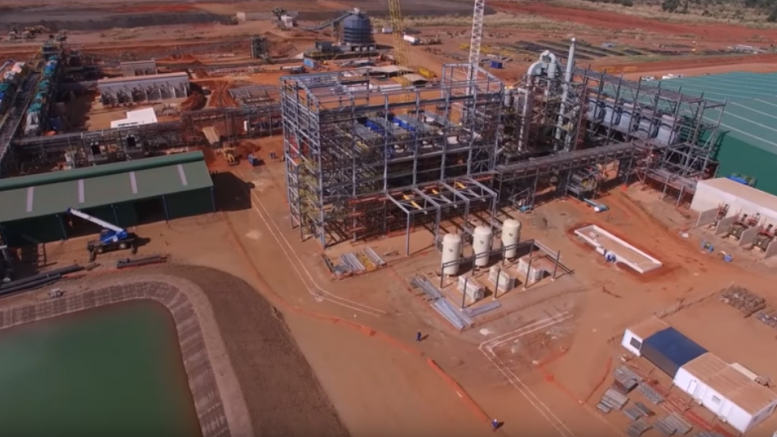Allegations of fraud in Mozambique’s general elections in early October have ignited protests and paralyzed mining operations across the country, including Syrah Resources’ (ASX: SYR) Balama graphite operation in the northern province of Cabo Delgado.
Production has ceased and the Australian-based miner has defaulted on its loans with the United States International Development Finance Corporation and U.S. Department of Energy, the company said Thursday.
“Nationwide protests associated with the electoral process is causing widespread disruptions throughout Mozambique, including at several mining operations,” Syrah Resources said in a release declaring ‘force majeure’ at its mine site.
“Circumstances surrounding the general election and the ongoing protests are significantly impacting National Government operations and hindering the ability of district and provincial government authorities to resolve illegal protest actions at Balama.”
Opposition parties have cited electoral fraud and other irregularities in the general election, which extended the majority of the ruling Frelimo party across national and provincial levels of government. The Mozambique Constitutional Court has yet to confirm the results. Frelimo has ruled the East African country since independence from Portugal in 1975.
Wider implications
Syrah’s graphite mine “is one of the world’s few non-Chinese sources of natural graphite,” BMO mining analysts commented in a research brief Friday. The company also runs an anode material facility in the U.S., “and has historically been considered a key supply link for the USA’s battery value chain.”
BMO notes that high inventories and weak demand for graphite fines, however, have meant that the mine “has been out of production since July.”
Mozambique’s Frelimo party has ruled the country since after a war of independence ended, but has lost support in recent years, according to the International Crisis Group, a thinktank based in Brussels.
“Mistrust of the government is rife,” the international non-profit group states on its website. “Most elections since the introduction of multi-party democracy in 1994 have been tainted by accusations of fraud.”
Anger in the country is not just about the contested elections, however, it stems from resentment over government corruption, police brutality and crippling poverty, the Crisis Group says.
“Frustration with the ruling party’s grip on the state apparatus has piled up among a populace demanding more democratic space, accountable government and better prospects for the future,” it notes. “Despite huge hydrocarbon resources, Mozambique is one of the least developed countries in the world, ranking 183 out of 193 nations on the UN Human Development Index.”
What’s more, the group says, there is an Islamic State-linked insurgency in northern Cabo Delgado province “that a succession of foreign military operations—including mercenaries from Russia and South Africa—has so far failed to quell.”
The province has been at the centre of an insurrection since 2017, the Crisis Group adds.
“While foreigners have joined in the name of jihad, most of the Mozambican rank and file militants are motivated by their perceived socio-economic exclusion amid major mineral and hydrocarbon discoveries in the region.”
Pre-election protests
The protests at Syrah’s Balama mine began in late September, prior to the general elections, the company says and were “originally linked to a small group of farmers with historical farmland resettlement agreements.”
But since the elections, it says, things have deteriorated further.
Prior to the elections on Oct. 9, Syrah says, and since the outcomes were announced, “protest actions have continued, with segments of the local population not directly involved in Balama’s resettlement process conflating unrelated issues and objectives.”
“The movement of people and supplies, site access and plant operations have continued to be interrupted. Most operational personnel have been demobilized from the site and a full contract security presence remains onsite.”
Syrah received a US$150 million loan from the U.S. International Development Finance Corp. to support the Balama operation earlier this year. It is the first loan to a graphite operation, Syrah says, and “aligns with the Washington’s push to secure critical minerals for clean energy and electric vehicle supply chains. The loan was to be put toward working and sustaining capital, for an expansion of the tailing storage facility, and feasibility studies on the development of Balama’s vanadium resource.
The open-pit Balama mine has a production capacity of 350,000 tonnes of graphite a year for a 50-year mine life.
In February the company started production at its Vidalia plant in Lousiana. Vidalia is the first vertically integrated natural graphite active anode materials (AAM) supplier outside China, the company says. It processes natural graphite from Balama.
Syrah’s shares hit a 52-week low of A18¢ apiece, down 5.3%on the day, giving the company a market cap of A$186.3 million (US$118.4 million).


Be the first to comment on "Unrest pushes Syrah Resources to declare ‘force majeure’ at Mozambique graphite mine"